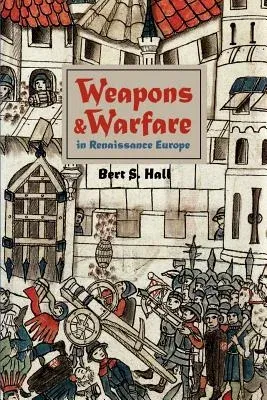Bert S Hall
(Author)Weapons and Warfare in Renaissance Europe: Gunpowder, Technology, and Tactics (Revised)Paperback - Revised, 1 December 1997

Qty
1
Turbo
Ships in 2 - 3 days
In Stock
Free Delivery
Cash on Delivery
15 Days
Free Returns
Secure Checkout

Reading Age
Ages: 22
Grade Levels
17
Part of Series
Johns Hopkins Studies in the History of Technology
Print Length
320 pages
Language
English
Publisher
Johns Hopkins University Press
Date Published
1 Dec 1997
ISBN-10
0801869943
ISBN-13
9780801869945
Description
Product Details
Audience:
Ages: 22
Authors:
Book Edition:
Revised
Book Format:
Paperback
Country of Origin:
US
Date Published:
1 December 1997
Dimensions:
23.42 x
15.14 x
2.01 cm
Educational Level:
Grade Levels: 17
ISBN-10:
0801869943
ISBN-13:
9780801869945
Language:
English
Location:
Baltimore
Pages:
320
Publisher:
Weight:
467.2 gm